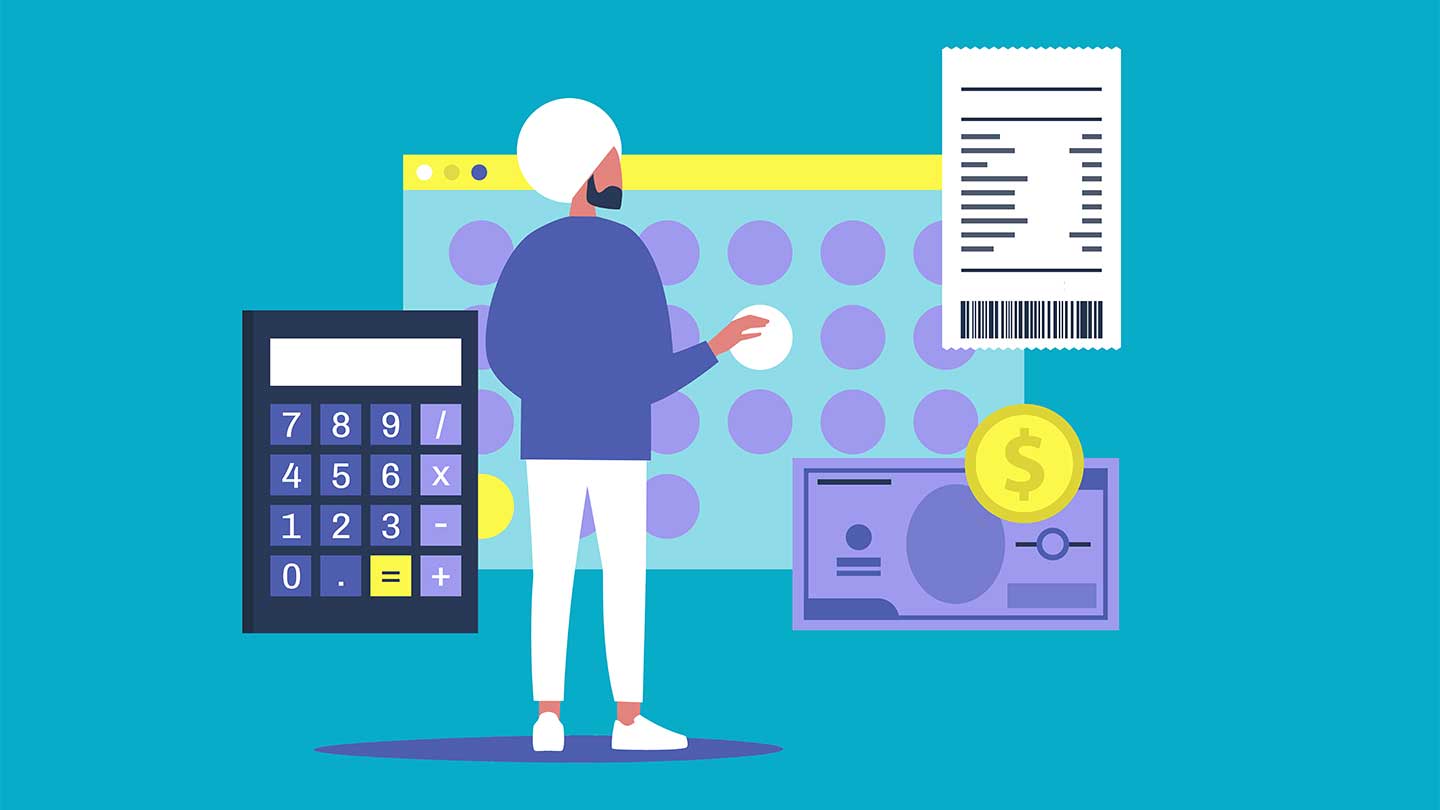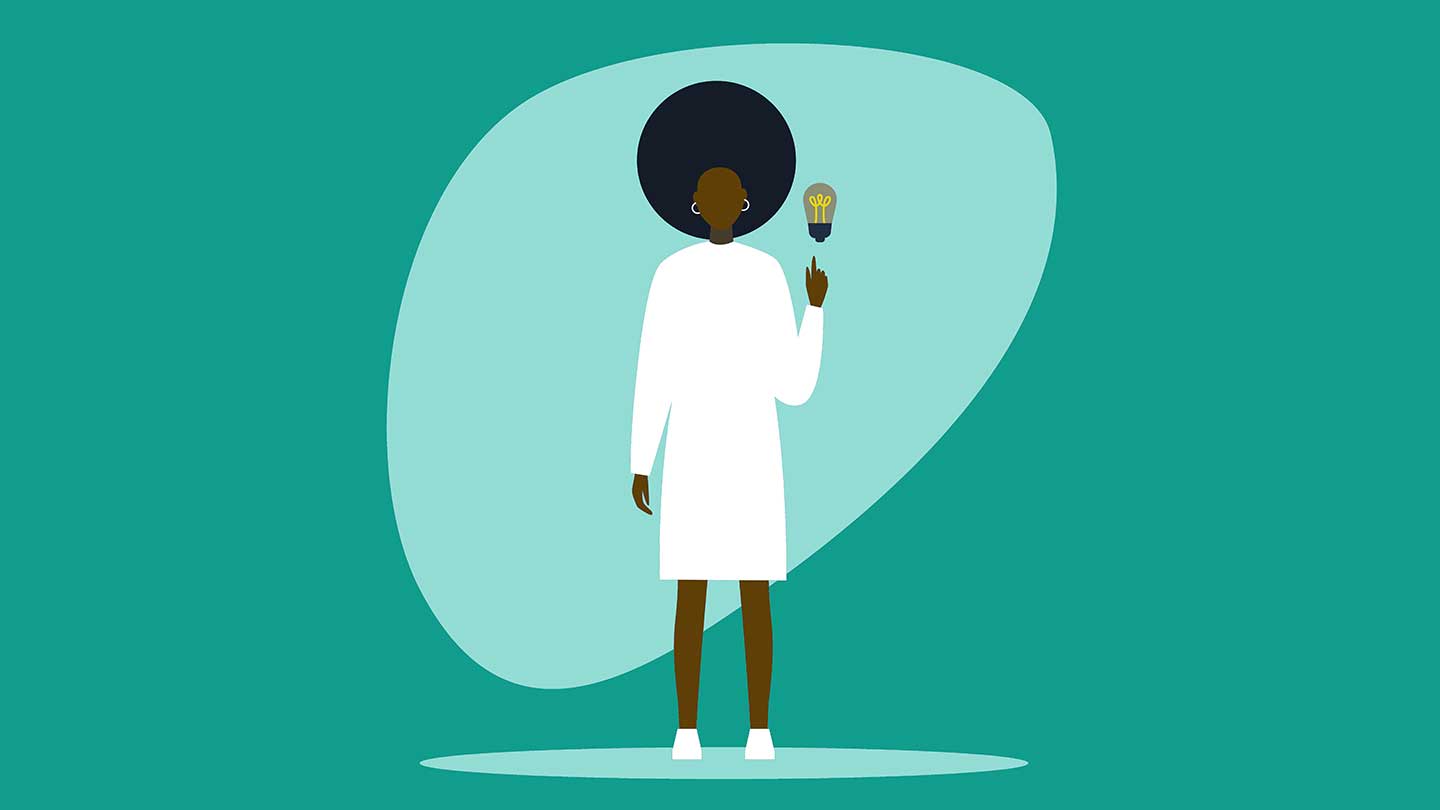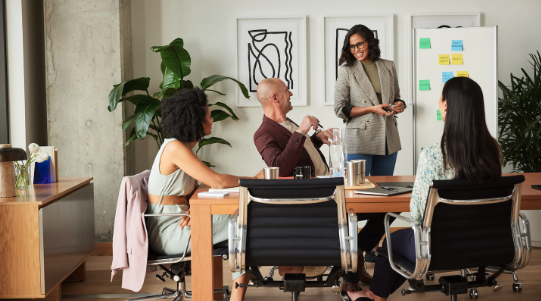Human connections are vital to our mental health, our feeling of inclusion, and a company’s ability to build and maintain culture. As we move toward a new normal, being intentional about how, where, and the ways in which we work will be more important than ever.
In a recent session at the WeWork Innovation Summit, Matt Jahansouz, the chief people officer at WeWork, and Edith Cooper, cofounder of Medley and former chief human resources officer at Goldman Sachs, discussed the importance of human connection in the workplace. Here are edited excerpts from the session. Watch the conversation on demand here.
Matt Jahansouz: Increasingly, it feels as if we can see the light at the end of the tunnel of this pandemic. What has working from home taught us about the importance of human connection?
Edith Cooper: We all recognize how important it is for us to have empathy and understanding for other people’s experiences. We, as human beings, have experienced an incredible amount of loss. The loss of being able to be out and about, to connect with friends and family, the loss of human life, and, of course, there are all of the stark experiences that have led to focusing on racial inequality.
We must understand that working from home is one piece of the human experience. This blended existence that’s resulted from living and working in a virtual world has really brought to the fore that we can be much more flexible in the way we think about work. We can be flexible with respect to the hours you’re working, for example. We also see very clearly that working virtually is not replacing the experience of gathering together and brainstorming. I think we also recognize that the new normal should include the old normal, which is being able to work and gather together.
Jahansouz: How do you think about the importance of human connection and culture? How should companies be thinking about culture in a post-COVID world?
Cooper: So culture is not something that just sort of drops from the sky. You have to be quite intentional about it. Every organization works really hard to identify individuals who would be assets to an organization. But really, the genius comes in identifying those individuals who will connect with other human beings in the organization that reflect, and ultimately support and help evolve, the culture. If, in fact, we are simply virtual, those opportunities for connections and gathering have to be planned. But in person, working together on a project, you can really be more intentional and reflect on everything that’s going on.
Jahansouz: Employers are asking, “How do I take care of my employee who’s just gone through a tremendous amount?” How can organizations take care of their employees?
Cooper: First and foremost, employers need to recognize that their people are human beings and be okay with honoring them for that. Mental health has been an issue in organizations, quite frankly, for some time. It’s often the largest medical expense of many larger companies who are offering benefits. There are all sorts of things that people have done tactically; giving people more personal time, offering coaching, Medley, group coaching. These are all mechanisms that companies are putting forth to say “I care about you,” and that’s not going to be optional going forward. I believe that’s going to be a basic offering that organizations should offer their employees.
Jahansouz: Where do you think companies will come out regarding going into the office versus working from home? What’s the model that most organizations will adopt?
Cooper: I think it’ll be somewhere on the continuum. I can’t think of a single organization that does not understand that the face time culture of being in the office is yesterday’s way of working. People realize that you can be productive wherever you are.
I do think that we have to be very thoughtful about the signaling and the messaging that we put forth. We need to make sure there are not those who are left out because of the flexibility they choose. If we tell people that it’s okay to work flexibly, but you feel like no one’s paying attention to you when you do, then you need to work with your talent teams to figure out what you’re going to put in place structurally so that it is actually a blended workforce.
Jahansouz: How do you see the effect of the pandemic and working virtually on creating a culture or an environment of inclusion?
Cooper: The environment that we’ve come through is an extraordinary opportunity to step forward in how we’re thinking about and creating environments where equality really does exist. I was inspired by the Black Lives Matter movement and the energy around speaking up around racial injustice. Unfortunately there are other examples of this needing to be brought up among the Asian population now. As a result, there was an outpouring of people who wanted to learn more.
We’ve had conversations where people have reached out and said, “Tell me about your experience.” I think that’s extraordinary. Going forward, each of us who has reached out to learn about another’s experience should pay attention to who’s in these calls and meetings and keep those conversations going. It shouldn’t just be this moment of extreme uprising. We should be focused on this every minute of every interaction, because I believe that that’s what it’s going to take to create sustainable change.
Jahansouz: You recently cofounded a company called Medley, which intends to bring people together and foster community and connection. Can you walk me through where you saw a business opportunity in human connection?
Cooper: It’s an opportunity that’s resulted from my experience of having led an organization for decades and my cofounder Jordan Taylor’s experience of being a technologically savvy, team-oriented person who also happens to be my daughter.
At Goldman Sachs I had the pleasure of having people come and seek my counsel. Often what we talked about was how they were interacting or relating to other people on their team. So I asked them to bring a handful of other people to the conversation. Over time this became an opportunity for people to walk in and dialogue with one another and get themselves comfortable being uncomfortable, talking to people who they didn’t really know, learning about topics they didn’t have the access to. So that was the first thing I realized: the power of positive group dynamics.
The second thing I recognized was that coaching is an incredible thing. We coach ourselves, but there’s also skill and an individual’s expertise in asking the hard questions of people to really dig deeper. And so, how do we get and give access to high-quality coaching and connectivity for those who are not able to get it in the workplace is important.
Now we have participants in Medley from all over the U.S. We have 10 countries represented and a turbocharged need that people have to really connect outside of their day-to-day, to broaden their perspectives. We have several companies we’re working with that want to offer this to their people.
Jahansouz: Seeing a lot of different conversations as people try to connect with one another, what insights have you drawn?
Cooper: First, we are all living a blended life. Our professional and personal identities are totally overlapped. Of course, the virtual world, where we’ve had personal and professional often in the same room, has really brought that to the forefront.
People have really pointed to the aha moments that they’ve had about themselves, by sharing their experiences with other people they don’t know. By sharing their experiences, they’re helping someone else, and in turn, they’re helping themselves. It’s that level of authentic dialogue in a trusting environment, which has also been “magic in the room,” so to speak.
And the third thing, which we are very excited about, is that people are taking the practice of being authentic and having real conversations back to their lives. And they’re coming back to their groups and saying, “You know what? I got to tell you, I had a conversation with my team today that I didn’t even know I was capable of having.”
Jahansouz: What can leaders be doing with their teams right now?
Cooper: You have to be intentional about it. If you want to not only maintain the culture of your organization but also enhance it and move it forward, you have to pay attention to it. You have to pay attention to individuals as humans. Listen to people. Ask them questions and then listen to their answers, use their names. Let them know their names. Follow up with questions that were interesting, that you think they might have an answer to. Human interaction from a leader is an incredibly powerful thing when you do it. Pretty simple but powerful.
Jahansouz: Where are you drawing optimism from? What do you think the future of work looks like?
Cooper: I draw optimism from the fact that we keep moving. We live in a world where we’re ill-prepared, unfortunately, for a pandemic—a world where we didn’t pay attention to racial inequality and the hardships of those less fortunate. But we are also living in a world where we have a vaccine in record time, where there has been an uprising to improve the prospects of many. And we’re having conversations like this.
I’m very optimistic about conversations like this, where we’re talking about what the future of work will be, as it relates to human beings in a very concrete and tactical way. I think that these conversations are happening everywhere. So for those leaders who believe that leadership is dictating “Thou shalt do X,” good luck with that, because the world isn’t the same anymore. You must be able to show empathy toward the experiences of your employees, who are human beings.
Watch the conversation on demand here.
Matt Jahansouz is chief people officer at WeWork. Edith Cooper is cofounder of Medley and the former chief human resources officer at Goldman Sachs.
Rethinking your workspace?










